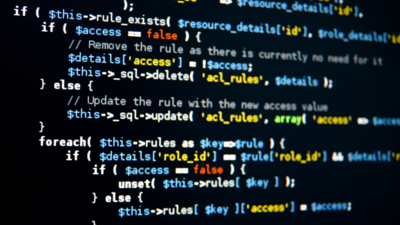
Learning to code still relevant says Google
Artificial intelligence (AI) has swiftly woven itself into the fabric of nearly every industry, reshaping the way we think, work, and create. From healthcare diagnostics to financial forecasting, AI is transforming tasks once deemed complex and time-consuming. In technology, its influence is particularly profound, with AI-driven tools stepping into roles that were once the exclusive domain of human expertise.
This technological shift has led to the question: Should the next generation still
learn to code
, now that AI can handle most of the heavy lifting?
In an interview with Business Insider,
Yossi Matias
, Google’s head of research, weighed in on this question, offering insights that reflect both the potential and limitations of
AI in software development
.
A helping hand, not a replacement
The rapid onset of AI across nearly every field, especially in technology, has reshaped the way we approach software development. Since the launch of ChatGPT and similar technologies, AI has transformed from niche tools to fundamental assets in coding, biology, chemistry, healthcare, and more.
For software developers, AI has created tools like GitHub Copilot, which can generate code based on human prompts, dramatically cutting down the hours developers traditionally spent on routine programming tasks. According to the Business Insider (BI) report, a Microsoft manager estimated that AI tools have reduced coding time by as much as 70%.
Addressing concerns about potential layoffs due to AI, Matias noted that the learning curve for junior engineers has evolved significantly. Newcomers often face challenges gaining traditional coding experience as AI tools handle some of the more repetitive tasks that junior developers used to perform.
This shift has introduced new efficiencies, but it has also raised concerns: some in the industry worry that AI’s rapid advancements could diminish the need for human coders, especially for entry-level tasks. Junior engineers now face a different kind of learning curve as AI fills in for some of the hands-on experience they might have gained through foundational coding tasks.
Yet, Matias emphasised that while AI may ease some of the initial steps in coding, it is far from replacing human coders entirely. He noted that even though Google now generates roughly a quarter of its code through AI, this output still requires thorough review and acceptance by experienced engineers. AI, he explained, is ultimately a tool for efficiency, not a substitute for the problem-solving and critical thinking skills that human developers bring to the table.
Why coding fundamentals still matter
When asked if AI’s advancement might render traditional coding skills obsolete, Matias asserted the opposite. "Everybody should learn how to code," he said, adding that the fundamentals are more critical than ever. Learning to code remains valuable, not just for aspiring software engineers but for anyone looking to understand the technological backbone of modern society.
Matias likened basic coding skills to maths: while advanced tools can perform complex calculations, people still need a foundational understanding of maths to grasp what’s happening behind the scenes.
He added that even as AI reshapes many industries, from healthcare to education, mastering these basics is essential to leverage the power AI offers. Matias emphasised, “Basic coding is like basic maths,” implying that it's not about becoming a coder but rather about understanding how technology works.
Coding’s place in an AI-driven future
According to Matias, AI is poised to enhance fields far beyond tech. In healthcare, for example, Google Research has integrated AI into applications like flood forecasting and image classification, providing real-time insights that can literally save lives.
Education, too, stands to benefit from AI. Matias envisions a future where AI tools could power interactive quizzes and personalised learning experiences, making education more engaging and accessible.
In an era where AI appears to be automating more tasks, Google’s research head firmly believes that foundational skills like coding are still indispensable. With AI technology advancing across diverse fields, Matias concluded that a basic understanding of coding equips people in the tech workforce to harness the benefits AI brings.
While AI tools might take over repetitive or straightforward coding duties, the fundamental knowledge of how code works will remain valuable. “There are going to be many more opportunities to actually build on that,” Matias said, highlighting that while AI tools evolve, the foundational disciplines continue to be crucial for anyone looking to navigate and contribute to an increasingly AI-integrated world.

 7 months ago
115
7 months ago
115




























 English (US)
English (US)